Steve Collins, a pastor at First Baptist Church Nicklesville, Va., is a communicator by trade. When he began to have difficulty hearing the children and women in his congregation after 35 years preaching, it became a detriment to his work with those he served.
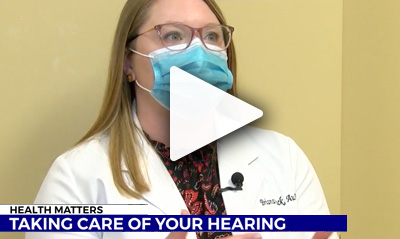 WJHL VIDEO: Briana Swanson, AuD
WJHL VIDEO: Briana Swanson, AuD
“As a pastor, one of my roles is that of a marriage counselor, helping couples who have trouble communicating clearly with one another,” Pastor Collins says. “A lot of times, I couldn’t hear what the wives were saying. It really crimped my communication skills.”
Pastor Collins knew he was at risk for hearing difficulties: During his physical for seminary school, a physician diagnosed a small degree of hearing loss in his left ear. When he and his wife positioned their chairs next to each other in their living room, he made sure to sit with his right ear facing her so he’d be sure to hear what she was saying. But over time, he began not to notice when she would strike up a conversation. She began to think he was ignoring her. “She told me I was using my selective hearing again, but the truth was, I couldn’t hear her,” he says.
In September 2020, after experiencing an ear infection for about a month and a half, Pastor Collins made an appointment with an ear, nose and throat specialist at Holston Medical Group in Kingsport, Tenn., to uncover the cause of these infections. HMG tested Pastor Collins’ hearing and discovered significant hearing loss not in his left ear, but his right.
“I could only hear half of the sounds with my right ear,” he says. “I had no idea my hearing was that bad. What really surprised me is that it happened so slowly. I work with churches in Cumberland Gap, Va.; I’m the president of the Appalachian School of Theology; I serve at our Baptist state convention; and I communicate with church members from international partnerships. It seemed unfathomable that I was able to do these things with just 50% of my hearing in one ear.”
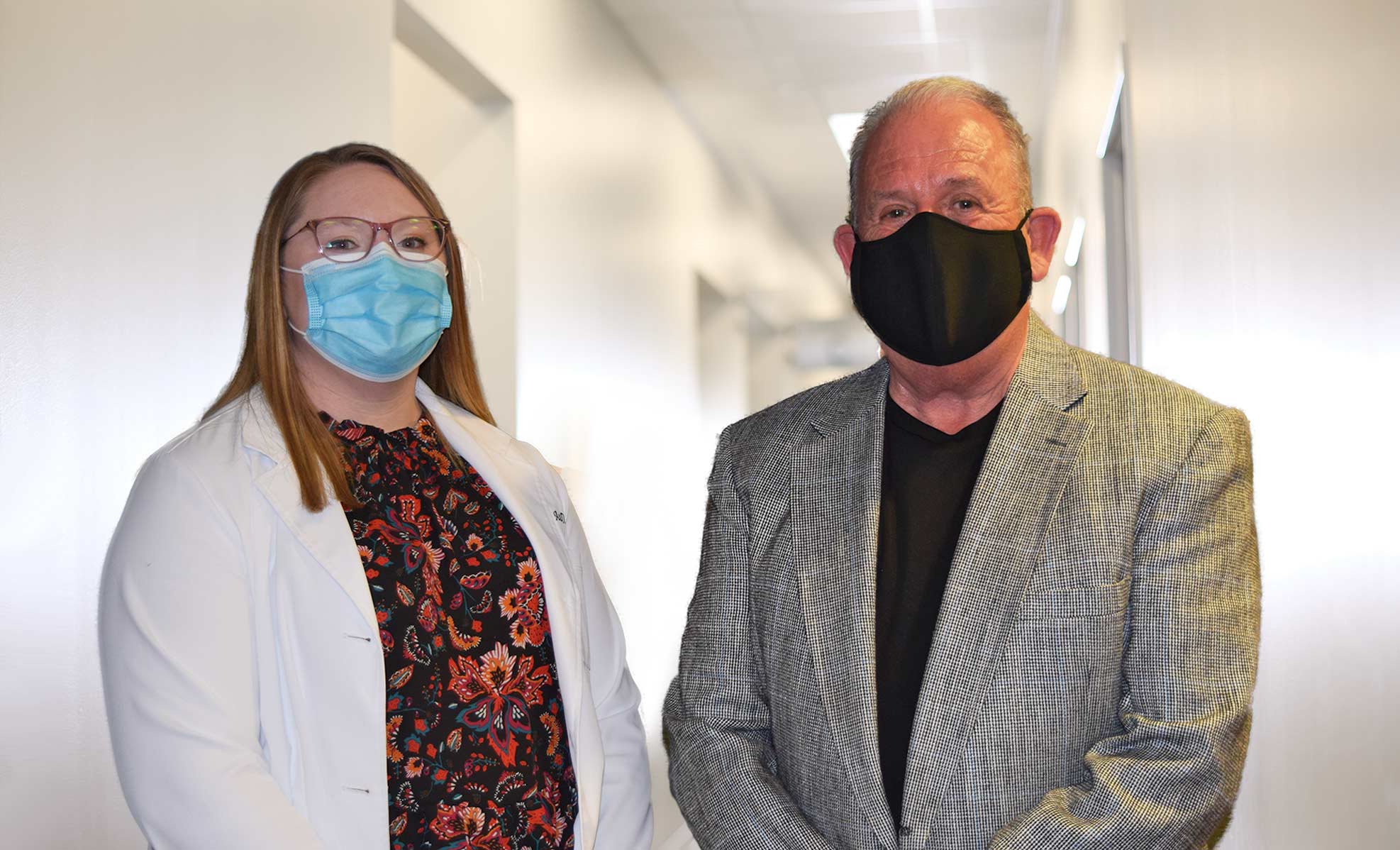
In my work as an audiologist at HMG, I often see scenarios such as this. The good news: They are often easy to treat. In Pastor Collins’ case, we fit him with hearing aids and let him try it out at home for a couple of weeks to see the difference it could make.
“It was an ‘Aha!’ moment for me,” Pastor Collins recalls. “The second Briana put those hearing aids in, I could hear so clearly! It was such a tremendous difference.
“Before I was fitted with hearing aids, I would receive questions from every angle of the room in the sanctuary during worship and meetings, and I just could not hear them. Over time, I started to read lips to understand what people were saying—and when the pandemic required us to wear masks, I really struggled to communicate. Now, I don’t have to compensate for hearing difficulties anymore. I can hear so clearly now, and the hearing aids are barely noticeable.”
How Sweet the Sound
My interest in audiology began at a young age. One of my closest childhood friends was born with hearing loss in both ears. I became curious about the hearing aids she wore and how they created sound. To me, they seemed like tiny miracles—and with modern technology, these devices are even smaller now. In high school and college, I took an American Sign Language class so I could better communicate with those who are Deaf.
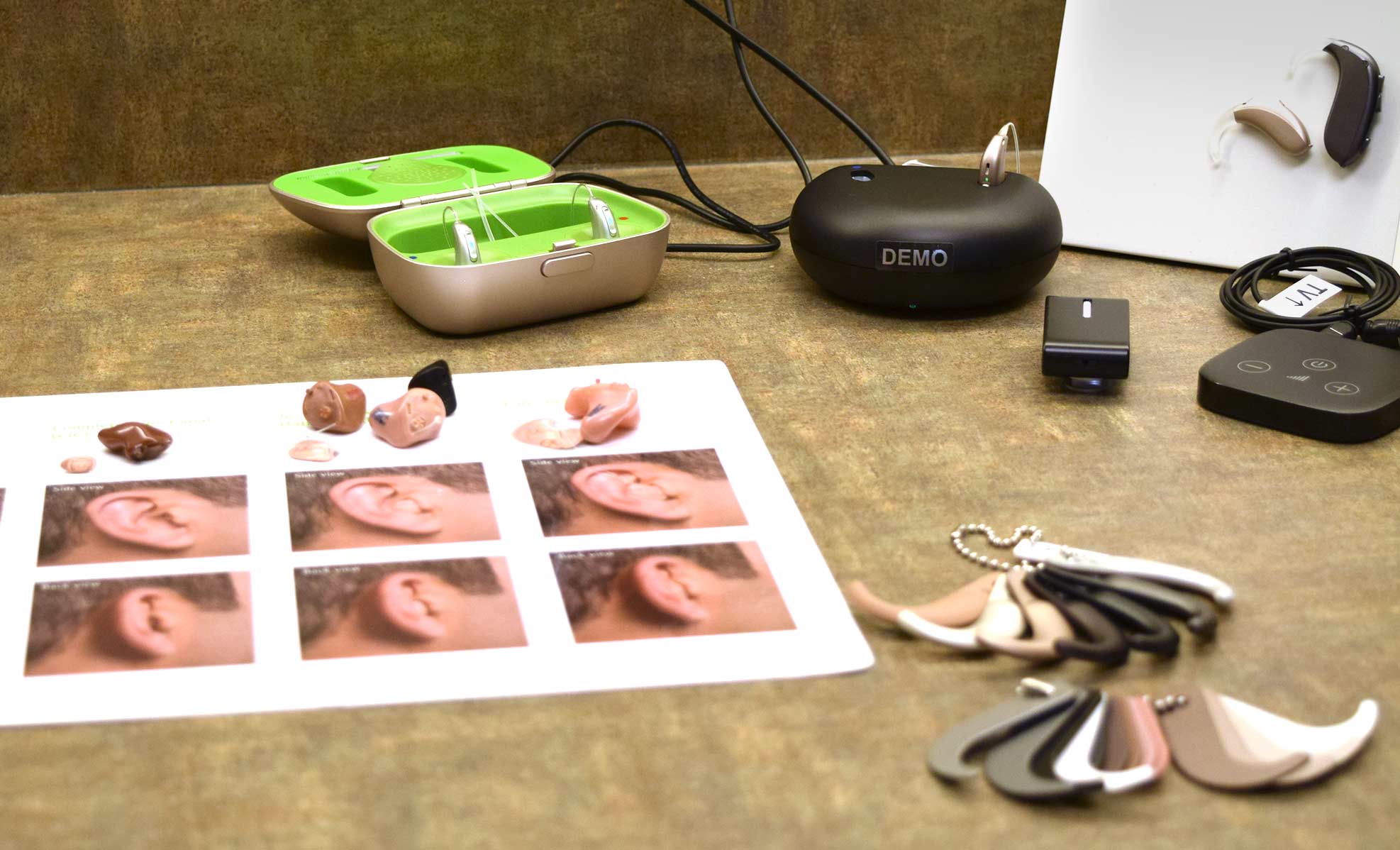
By the time I graduated high school, I knew what my college major would be: communication sciences and disorders. I received my bachelor of science from Illinois University and went on to earn a doctor of audiology at East Tennessee State University.
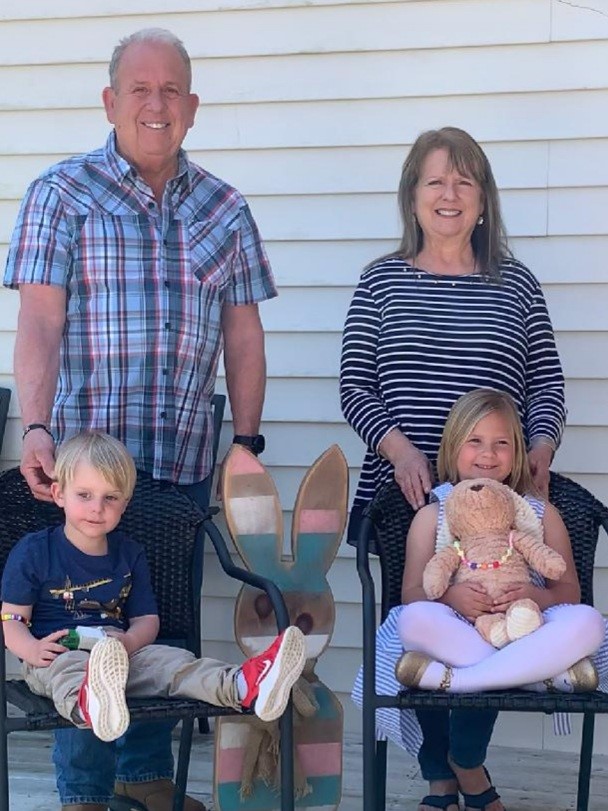
As an audiologist, my number one goal is making sure that individuals who struggle with hearing loss have access to the right resources that enable them not only to improve their hearing, but also their quality of life. Individuals who face hearing loss often struggle with depression, withdrawal from loved ones, and feelings of isolation. Those feelings are magnified during the pandemic, when masks eliminate the “tricks” that people with hearing loss rely on to get by, such as reading lips. Pastor Collins recalls a trip last summer to a hotel during a short getaway. “The receptionist was behind plexiglass, and she was wearing a mask. Everything she said sounded like Charlie Brown’s teacher to me,” he says.
It’s important to remember that hearing loss is common—and it affects young people as well as seniors. Consider the statistics: One in eight people in the United States age 12 and older suffers from hearing loss in both ears. Age is the strongest predictor of hearing loss, with seniors—especially men, who are twice as likely to be diagnosed as women—most likely to be diagnosed. However, hearing loss among children and people in their 20s is not uncommon. In fact, 20% of people in their 20s live with hearing loss, according to a Centers for Disease Control & Prevention study.
At HMG, I work to support patients’ emotional needs that arise from navigating a world where undiagnosed hearing challenges have held them back, especially during a pandemic. By providing the right diagnosis and determining the best ways to offer support, I help patients feel more confident in themselves and their communication with others.
We’ll Help You Skip to Your Own Beat
Finding the right solution starts with an audiology screening, which takes about 15 minutes and is simple to complete and—just as important—completely painless. It’s much like a visit to an ophthalmologist for a vision check. Patients sit in a booth with a pair of headphones, and an Audiologist asks them to raise their hand when they hear a sound. Patients’ reaction to these sounds measure not just whether they have hearing loss, but also the extent of hearing loss in each ear and the types of sounds that are most likely to present difficulties.
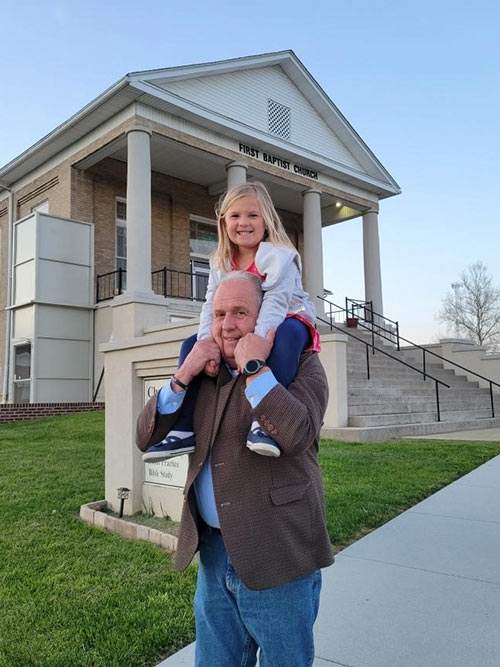
From there, patients meet with an audiologist to discuss their options. In my conversations with patients, I stress that there are a variety of styles of hearing aids—not the clunky kind that we think of from old movies or what our grandparents might have worn! Technology has come so far, and today’s hearing aids are much smaller, more discreet, and more comfortable.
For example, noise cancellation technology can help patients who navigate a variety of environments where sound types and levels vary. There is also directional microphone technology that categorizes specific types of sounds and adjusts the hearing aid accordingly so that conversations are amplified, not the sound of the street worker drilling into pavement nearby. New digital technologies make it possible to adjust frequency or pitch according to individuals’ needs and preferences, while Bluetooth technology works with smartphones, televisions and car stereos.
We’re also careful to review options that best fit the patient’s budget. Income level should not prevent patients from seeking the help they need. When I talk with patients, I help them find the options that best fit their lifestyle and their budget. We offer free demonstrations of hearing aids and, in instances where insurance allows, we schedule a risk free trial, with an appointment at the two-week mark to determine whether a particular option is the right choice.
“Briana was careful to tell me, ‘You know, you’re not obligated to purchase these hearing aids from us. You’re welcome to go anywhere. We’re here to help you,’ but I knew from the moment she put these hearing aids on that they were what I needed,” Pastor Collins says. “I appreciated that the team at HMG really cared about me and wanted to help.”
Finding Help—and Offering Assistance to Those You Love
With May being Better Hearing and Speech Month, now is a great time to make an appointment for a consultation for you or a loved one who may be struggling with hearing loss. Even in instances where hearing aids are not an option, HMG can make recommendations that help improve your communication skills and quality of life. Some of these techniques include:
- Reducing background noise and distractions, where possible
- Making sure you have visual cues during conversations and can face the person you are speaking with
- Being specific when asking for assistance, such as asking a person to slow down, speak up or face you when speaking
We can also offer tips for family or loved ones on ways to better support people living with hearing difficulties. Five tips that can make a difference include:
- Make an effort to enunciate your words
- Consider using simpler words or phrasing when you are asked to repeat what you have said
- Speak loudly, but don’t shout! Shouting can further distort sounds
- Make sure you’re facing the person when speaking to them
- Try to be in the same room with the person when having a conversation
With time and practice, you’ll discover which techniques work best.
The impact of finding the right solution can be instant and dramatic. “It’s a totally different world for me,” Pastor Collins says. “When I gave my first Sunday morning message after being fitted with hearing aids, several people came up to me afterward and said, ‘There’s something that has changed about you. You’re not as loud as you were before.’ I told them, ‘Well, the thing that has changed is that I can hear myself now.’ It’s been such a tremendous help, and I’m so excited about that.”
He advises individuals who believe they might suffer from hearing loss to make an appointment with HMG. “The team at HMG is professional and excellent. They support you 100%, and they are so easy to work with,” he says. “There is no pressure to buy anything. They simply want to help.”
For more information, or to make an appointment, call HMG Ear, Nose & Throat at 423-392-6299.

